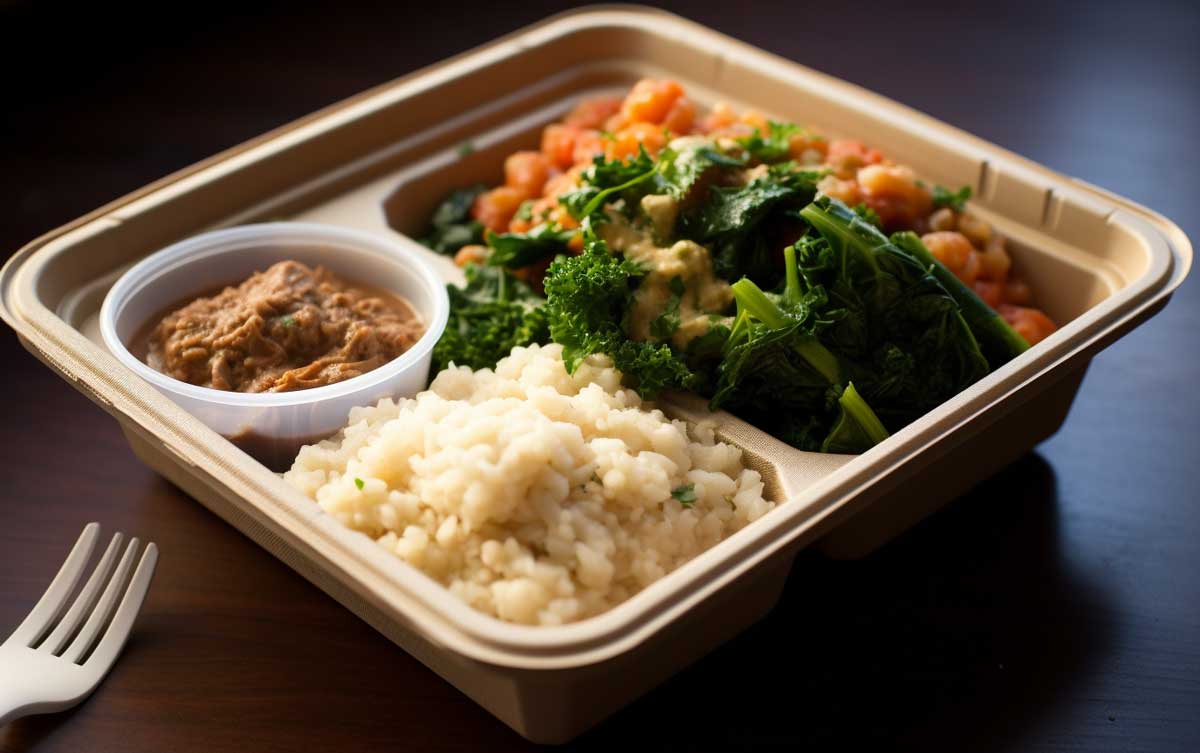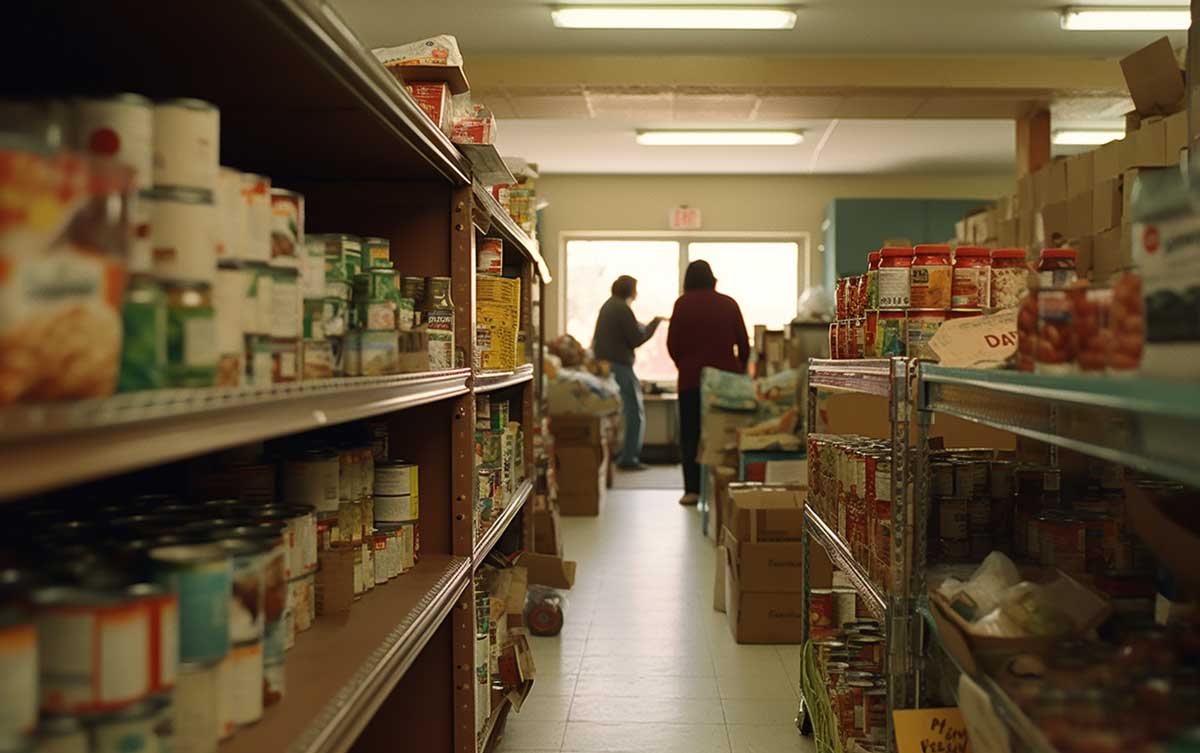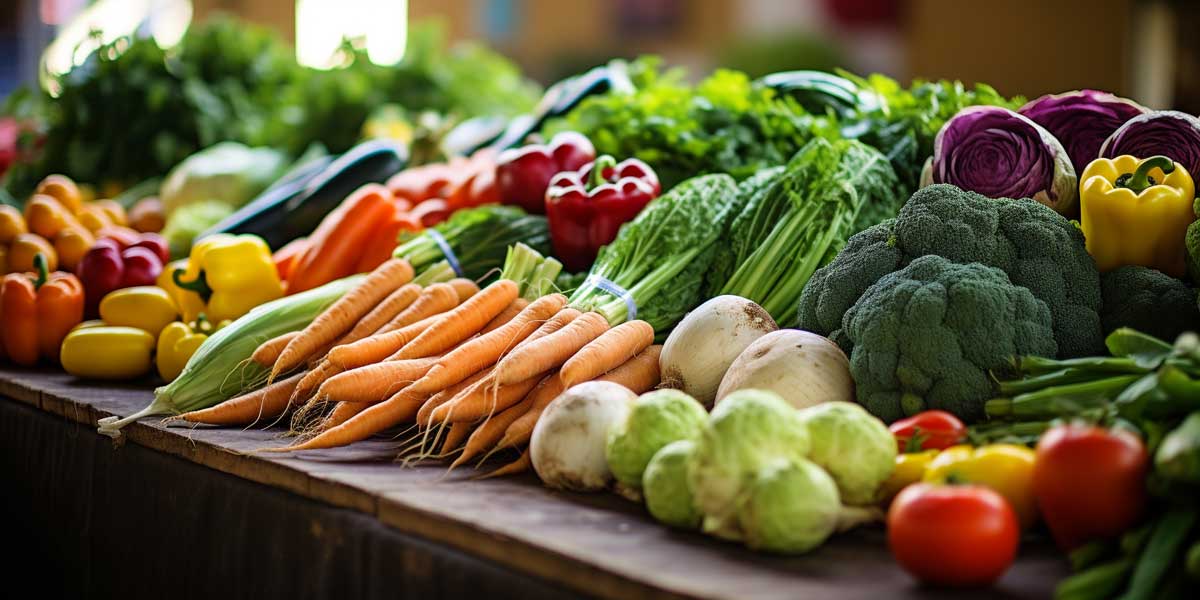Senior Meals on Wheels delivers nutritious meals to homebound seniors who can't shop or cook. This service boosts elderly life quality by tackling food insecurity and promoting nutritional health. More than just meals, the program serves as a safety check, with deliveries also ensuring recipient well-being.
It combats seniors' loneliness through volunteer interactions, offering valuable companionship. Meals are tailored to dietary needs and can be centrally prepared or home-delivered. Funded by grants and donations, the program's demand often exceeds available resources. It's a cornerstone in enhancing senior well-being nationwide.
Benefits of Senior Meals on Wheels
The Senior Meals on Wheels program is pivotal for the elderly community, going beyond just addressing nutritional needs. Aging amplifies the importance of nutrition for maintaining health. Through the program, seniors are guaranteed well-balanced meals tailored to their unique dietary preferences, fortifying their physical health and overall vitality.
Safety Checks & Assurance
Apart from nutritious meals, the program doubles as a safety net. Each delivery becomes a crucial touchpoint, enabling volunteers to monitor the safety and well-being of homebound seniors. This system grants peace of mind to both the meal recipients and their families, knowing that their loved ones have a consistent safety check.
Tackling Loneliness & Social Isolation
A pressing issue among the elderly is the shadow of loneliness and social isolation. Here, Senior Meals on Wheels plays a transformative role. With regular visits from spirited volunteers, seniors not only receive a meal but also gain valuable social interactions. This contact diminishes feelings of isolation, fostering mental and emotional wellness and enhancing life quality.
Flexibility & Accessibility
Another commendable aspect of the program is its adaptability in meal delivery. Meals can either be centralized or home-delivered, ensuring every senior, regardless of their mobility, has access to nutritious food. This flexibility removes nutrition barriers and champions elderly independence.
Funding & Continued Support
The program thrives on diverse funding sources: government grants, public generosity, and community support. Yet, the existing funding often lags behind the escalating demand, leading to waitlists and limited meal access for needy seniors. Continued advocacy for augmented funding is paramount to ensure every eligible senior benefits from this vital service.
Senior Meals on Wheels encapsulates a holistic approach to elderly care, addressing nutrition, safety, socialization, and independence. However, our collective support and heightened funding are pivotal. Investing in the program is an investment in the health, joy, and dignity of our senior community.
Nutritious Meal Options
Proper nutrition is a linchpin of health, especially as we age. The Senior Meals on Wheels program offers nutritionally balanced meals tailored to seniors' unique needs. Using fresh, local ingredients, the program crafts diverse meal options ranging from low-sodium dishes for those with hypertension to diabetic-friendly options.
Beyond physical nourishment, these meals also cater to specific dietary restrictions and allergies, with experts ensuring each senior's nutritional needs are met. Diversity is at the heart of the program, with a rotating menu that boasts a medley of flavors, from hearty entrees to delectable desserts.
However, the program's benefits transcend nutrition. With each meal delivery, a volunteer often accompanies, offering invaluable social interaction that bolsters mental and emotional well-being, and combating loneliness. Senior Meals on Wheels isn't just about food; it's about ensuring holistic well-being, fortifying both the body and spirit of the elderly community.
Types of Nutritious Meals Offered
The Senior Meals on Wheels program is committed to catering to the multifaceted dietary preferences of seniors. Whether requiring home delivery or dining at a program site, seniors are availed of various meals tailored to their health and taste.
Heart-healthy options, low in sodium and fats, support those with cardiovascular concerns. For diabetics, meals emphasize low-glycemic foods, balancing taste with health. Special attention is given to seniors with dietary restrictions like gluten or lactose intolerance, ensuring no compromise on nutrition or flavor. Vegetarian and vegan meals focus on plant proteins, ensuring a nutrient-rich diet.
Additionally, the program respects cultural and regional food inclinations, offering dishes from diverse cuisines. Whether Italian pasta or an Asian stir-fry, seniors can relish meals reminiscent of their heritage.
In essence, the program delivers not just nutrition but also joy, promoting overall senior well-being.
Nutritional Facts and Requirements: Fueling Senior Health
With age, our nutritional requirements shift. The Senior Meals on Wheels program recognizes this, crafting meals aligned with seniors' needs. Guided by nutritional standards, meals incorporate essential vitamins, minerals, and nutrients vital for senior health.
Heart-friendly choices, diabetic-suitable dishes, and meals for specific dietary constraints demonstrate the program's holistic approach. Vegetarian or vegan dishes, packed with essential nutrients, cater to plant-based dieters. The program also emphasizes cultural variety in meals, allowing seniors to indulge in familiar flavors.
Conclusively, understanding the pivotal role of nutrition in senior lives, the program ensures each meal is a step towards better health and enriched living.
Menu Variety
The Senior Meals on Wheels program prioritizes menu diversity, understanding seniors' tastes, cultural backgrounds, and dietary necessities. Recognizing that food transcends nourishment to encompass comfort and joy, the program presents an array of flavors to elevate mealtime pleasure.
It thoughtfully addresses dietary constraints—whether vegetarian, vegan, gluten-free, or lactose-free, ensuring seniors feel neither deprived nor limited. Celebrating cultural diversity, the program integrates diverse culinary traditions, fostering a connection to seniors' roots. This not only nurtures familiarity but also encourages culinary exploration, turning mealtimes into enriching experiences.
By actively seeking feedback, leveraging seasonal produce, and collaborating with chefs and nutritionists, the program ensures a dynamic, ever-evolving menu. In essence, the program's commitment to variety ensures seniors receive meals that are nutritious, delightful, and resonant with their unique preferences, bolstering their overall satisfaction and well-being.
Personalization Options for Special Diets
The Senior Meals on Wheels program prioritizes seniors' dietary needs, balancing health and personal preferences. Recognizing unique dietary constraints stemming from health conditions like diabetes or heart disease, the program offers customized meals—diabetic-friendly, low-sodium, and heart-healthy—formulated by nutritionists to combine taste and nutrition.
Catering to beliefs or lifestyles, options extend to vegetarian, vegan, gluten-free, or lactose-free diets. The program also celebrates cultural diversity, presenting ethnically diverse dishes, and allowing seniors to relish their culinary heritage while ensuring nutritional intake. Ongoing communication with seniors facilitates timely adjustments to dietary needs.
Moreover, the program collaborates with healthcare professionals, addressing needs for nutritional supplements or fortified meals when necessary. In essence, the Senior Meals on Wheels program's commitment to personalization guarantees seniors access to nutritious meals, enhancing their overall health and quality of life.
Delivery Methods and Safety Checks
The Senior Meals on Wheels program prioritizes safety and reliability in its meal delivery services. Utilizing home delivery, trained volunteers bring meals directly to seniors, a boon for those with limited mobility. Beyond mere nourishment, these deliveries also serve as a vital wellness check.
Volunteers engage with seniors, observing signs of distress or isolation, and report potential concerns, melding food delivery with social connection. Rigorous protocols ensure the safe handling of meals. Amid the COVID-19 crisis, the program swiftly transitioned to contactless delivery, safeguarding seniors and volunteers.
Recognizing the unpredictability of emergencies, the program supplies shelf-stable backup meals, ensuring seniors have consistent access to nutrition even in unforeseen circumstances. With robust delivery methods, safety checks, and proactive measures, the Senior Meals on Wheels program guarantees seniors dependable access to nutritious meals, enhancing their overall well-being and quality of life.
Home Delivery Services
Home delivery services, like those offered by the Senior Meals on Wheels program, are indispensable for seniors with limited mobility. Trained volunteers ensure direct delivery of nutritious meals to seniors' homes, offering not only sustenance but also fostering independence and dignity.
Beyond meal delivery, these visits serve as crucial social contact, combating isolation and providing companionship. Upholding rigorous safety standards, volunteers adhere to strict food handling practices, ensuring meal quality and freshness. During the COVID-19 crisis, the program swiftly adopted contactless delivery, minimizing exposure risks.
Anticipating emergencies, the program offers backup, shelf-stable meals for unforeseen disruptions. By seamlessly intertwining nutrition, safety, and social interaction, the Senior Meals on Wheels program significantly enhances the lives of seniors, affirming its commitment to well-being and social connection through consistent, safe, and nourishing meal deliveries.
Safety Checks Before Delivery
The Senior Meals on Wheels program extends beyond meal delivery by emphasizing safety checks to safeguard seniors and volunteers. Before commencing deliveries, volunteers receive extensive training, preparing them to detect distress signs or health anomalies during their visits.
These interactions are dual-purpose: delivering nutrition and assessing seniors’ health and environment. Volunteers vigilantly observe seniors for behavioral or physical changes that may denote risks. Any concerns are immediately relayed to program coordinators, prompting swift interventions, which could involve emergency contacts or even local authorities.
Moreover, the delivery process emphasizes clear pathways and accessibility to avoid potential hazards. Inclement weather might instigate adjusted delivery schedules, underscoring the program's unwavering commitment to safety. Consequently, the Senior Meals on Wheels program doesn't merely satiate hunger but provides an encompassing, secure support system, reinforcing physical security and peace of mind for seniors and their families.
Hot Meal vs. Frozen Meal Delivery Services
Meal delivery services for seniors offer both hot and frozen options, each with unique advantages. Hot meal deliveries provide fresh, ready-to-eat dishes, perfect for those with limited mobility or specific dietary needs. These meals offer immediate enjoyment and a potential for social interaction during delivery.
Conversely, frozen meal services allow seniors to stockpile a variety of choices, granting flexibility in meal times and prolonged storage life. When choosing between them, consider dietary needs, storage space, and personal preferences.
Additional Services Offered with Meal Delivery
Beyond delivering food, many senior meal delivery programs offer services that enhance seniors' overall well-being. Regular safety checks provide a daily wellness assessment, which is crucial for isolated seniors.
Some services include pet food delivery, and recognizing pets' vital roles in seniors' lives. Transportation services are offered by certain programs, aiding in attending medical visits or social events. Some even collaborate for home repairs, ensuring a safe living environment. The scope of these additional services can vary among providers but aim to bolster seniors' well-being and independence.
Quality Control Procedures for Food Safety and Freshness
Quality control in senior meal delivery ensures optimal food safety and freshness. Adherence to food safety standards is paramount, from sourcing reputable ingredients to training staff in safe handling. Regular inspections of facilities and storage areas maintain sanitation and freshness. Meals undergo standardized cooking and packaging processes.
Traceability systems are often implemented for swift recall actions if required. The delivery process is streamlined, with temperature-controlled vehicles ensuring timely and fresh deliveries. Continuous audits and feedback mechanisms guarantee ongoing improvements, emphasizing seniors' satisfaction and safety.
Eligibility Requirements and Waiting List Options
Senior Meals on Wheels programs cater to homebound seniors, ensuring they receive nutritious meals. Given high demand and finite resources, many have eligibility criteria and waiting lists. Typically, eligibility is based on age (often starting at 60 or 65), income level, and mobility restrictions.
Priority is given to low-income seniors and those with mobility challenges, ensuring support reaches those who struggle with meal access due to financial or health constraints. Once deemed eligible, some seniors might face waiting times, influenced by the local senior population and funding.
While awaiting regular meal services, seniors might access community meal sites or receive interim shelf-stable meals. In essence, though eligibility and waiting lists might pose initial barriers, they prioritize critical support for the most vulnerable seniors, ensuring equitable access to nourishment.
Qualifications for Participating in the Program
To participate in the Senior Meals on Wheels program, individuals must satisfy certain eligibility criteria. These are established to prioritize the most vulnerable seniors and optimize limited resources.
Common factors include age, with most programs targeting those aged 60 or 65 and older, highlighting seniors with age-related challenges. Financial need is paramount; many programs focus on those with low incomes, aiming to combat food insecurity among seniors. Mobility constraints are also considered, prioritizing homebound seniors or those with limited mobility who find accessing meal sites or self-preparation challenging.
Specific qualifications might differ by program, potentially involving residency stipulations, health evaluations, or documentation of need. Those interested should consult their local program for detailed criteria. In essence, these prerequisites ensure that the program aids the most in-need seniors, guaranteeing them access to nutritious meals.
FAQs
1. What is the primary purpose of the Senior Meals on Wheels program?
The program is designed to provide nutritious meals to vulnerable seniors, ensuring they maintain proper nutrition and health.
2. How do I know if I qualify for the program?
Eligibility is typically based on age, financial need, and mobility limitations. However, specifics can vary, so it's essential to contact your local program.
3. Do all programs have the same age requirement?
While many programs cater to those aged 60 or 65 and older, age requirements can differ based on local policies and needs.
4. Can I apply if I have temporary mobility issues?
Yes, many programs consider temporary mobility challenges, recognizing that short-term needs are also crucial.
5. Are there alternatives if I'm placed on a waiting list?
Some programs offer meal sites or provide shelf-stable/frozen meals to those waiting, ensuring continuous access to food.
Conclusion
The Senior Meals on Wheels program is a vital initiative, aiming to ensure the elderly, financially-strained, and mobility-challenged seniors receive nutritious meals. As requirements vary, prospective participants should actively engage with local programs for precise eligibility and benefits, guaranteeing they receive the essential support they deserve.







